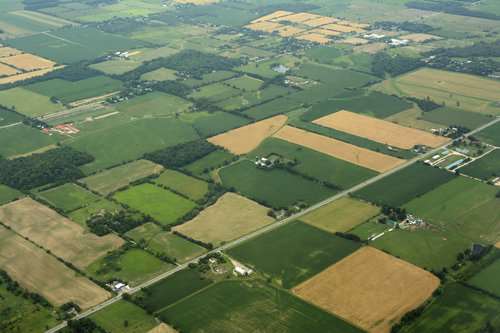The Board reaches decision after farmers voice concerns
By Jennifer Jackson
The Canada Pension Plan Investment Board (CPPIB) is backing away from investing in Canadian farmland, after the Board reviewed its operations and received backlash from concerned farmers, according to an Apr. 26 Reuters article.
The CPPIB, Canada’ largest pension fund, first purchased 120,000 acres of American farmland in 2012. And almost the same amount in Canada. In 2013, the CPPIB invested $128 million in 115,000 acres of Saskatchewan farmland – the plan was to purchase an additional $500 million in Canadian farmland over five years.
Farmers in Saskatchewan said that the CPPIB would create unfair competition for farmland. Farmers also worried that the CPPIB would significantly raise land rental prices to maximize profits.
In response to this concern, the Saskatchewan Government made it more difficult for investors to purchase farmland.

Although the CPPIB did not comment on the change to its investment plan, Michel Leduc, head of global affairs, spoke of how investments are reviewed.
"We assess performance of each investment program with (market challenges) in mind as well as fit within our total portfolio approach, contribution to diversification and desired return-risk profile,” Leduc told Reuters.
After a company review of the investment portfolio, the CPPIB felt, in its current financial position, it could not justify additional farmland investments. The CPPIB is interested in selling their current portfolio, inside sources told Reuters.
Farmland is a common investment for pension funds worldwide. Gulf Arab state’s wealth funds are purchasing farmland in developing countries to aid in food security, according to Reuters. Australian pension funds are also purchasing farmland as an investment.
As the CPPIB abandons plans to invest more in Canadian farmland, the Board focuses the food processing and packaging sector of the agricultural industry. Last year, the Board purchased a 40 per cent stake in Glencore Plc, an ag processor and marketer.
Farms.com has reached out to Saskatchewan Agriculture for comment on how the CPPIB decision will affect producers.